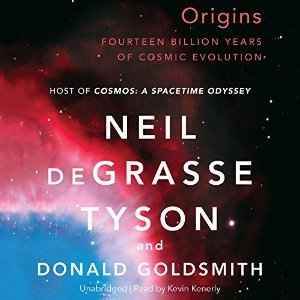
A Short History of Nearly Everything
Book Description
Discover the astonishing secrets of the universe in **A Short History of Nearly Everything**. Bill Bryson takes you on a thrilling journey through time and space, unraveling the mysteries of science in a way that feels like an epic adventure. From the explosive birth of the cosmos to the intricate dance of evolution, each page pulses with wonders and revelations. Meet the brilliant minds who shaped our understanding, and marvel at the quirks and eccentricities of the natural world. Can we truly grasp the vastness of existence, or is the ultimate mystery just beyond our reach?
Quick Book Summary
A Short History of Nearly Everything by Bill Bryson is a captivating exploration of the universe, blending science, history, and humor. Bryson embarks on an ambitious quest to uncover how our world came to be understood, making complex scientific ideas accessible for readers of all backgrounds. He tackles subjects like the origins of the cosmos, the development of Earth, the mysteries of life, and humanity’s ever-changing understanding of the natural world. Woven throughout are stories of the remarkable—and often eccentric—scientists whose discoveries shaped human knowledge. Bryson’s conversational tone and wit make even the most daunting topics engaging, inviting readers to marvel at both the vastness of space and the intricacies of our own planet. Both educational and entertaining, the book instills a sense of wonder at the unlikely circumstances that led to our existence.
Summary of Key Ideas
Table of Contents
The Origins and Structure of the Universe
Bill Bryson begins his journey by explaining how the universe itself came into existence, condensing astronomical concepts like the Big Bang into clear, engaging prose. He explores the immense scales of space and time, helping readers appreciate the strangeness and fragility of our cosmic neighborhood. The awe-inspiring improbability of the universe—and our own existence—sets the stage for the book’s narrative.
The Evolution of Earth and Life
Moving from the cosmos to our own planet, Bryson delves into the Earth’s formation, geological processes, and the delicate conditions that have allowed life to thrive. He discusses phenomena like plate tectonics, volcanoes, and the origins of the oceans, emphasizing how little we sometimes still know about our planet’s very structure and history. The book highlights both the everyday miracles of the natural world and the catastrophes that have reshaped it.
Human Curiosity and Scientific Discovery
A significant portion focuses on the rise of life, exploring the mysterious emergence of complex organisms and the evolutionary processes that shaped biodiversity. Bryson explains the intricacies of DNA, extinction events, and the improbable chain of events leading from simple molecules to conscious beings. He marvels at both the continuity and randomness inherent in life’s history and recounts how scientists have pieced together these daunting puzzles.
Quirks and Limits of Scientific Knowledge
Central to the narrative is humanity’s relentless curiosity. Bryson profiles pioneering scientists—some famous, others obscure—whose work revolutionized our knowledge despite social or cultural obstacles. The book captures the drama, humor, and occasional accidents behind groundbreaking discoveries in physics, chemistry, biology, and geology, paying tribute to those who dared to ask big questions and challenge accepted wisdom.
Despite humanity’s progress, Bryson concludes with humility, noting how much about the universe, Earth, and life itself remains unknown. He underscores the provisional nature of scientific knowledge, the limits of our understanding, and the excitement of embracing the mysteries yet unsolved. Ultimately, Bryson invites readers not just to learn science, but to appreciate its sheer wonder and strangeness.
Download This Summary
Get a free PDF of this summary instantly — no email required.





